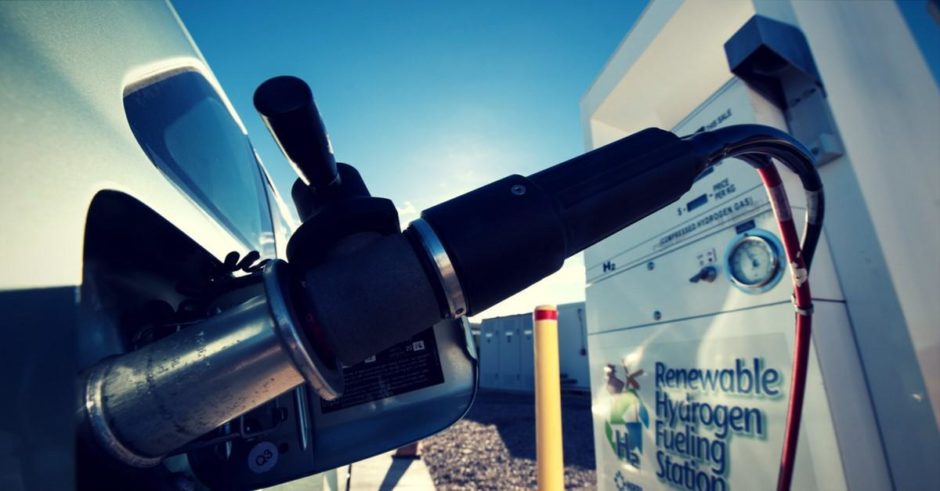
Hydrogen is a major target in the energy transition, so it is only right that Africa launch its own plan to accelerate uptake.
The African Hydrogen Partnership (AHP) took a new step on December 15. “African hydrogen is not just an option to achieve net zero, it’s crucial,” said AHP chairman Dr Innocent Uwuijaren.
“Africa is privileged to have abundant resources and land mass, making it easy to establish projects,” he told Energy Voice. “The 54 states of Africa must come together. The only way to success is through the creation of alliances and collaborations.”
AHP announced the entry of 14 pioneer members. These are Anglo American, Bluenergy Revolution, Cheranna Energy, Gencell, HDF Energy, Hydroma, Hydrox Holdings, Hypowa, iH2 – Ivoire Hydrogène, Jacob Lawren, Mobility Africa Energy, Port of Rotterdam, RTS Africa Engineering and Sable Chemicals.
Power and beyond
Uwuijaren said investments in hydrogen would help tackle the continent’s electrification problem. “Investors will come in and build hybrid projects. This would see them generating their own power and taking excess power from the grid to produce hydrogen.”
He was keen to highlight that producing hydrogen would not come at the expense of providing power to locals. “Africa has power problems. Hydrogen can store excess power during non-peak periods. It’s not a product, it’s an energy carrier.”
Hydrogen, therefore, could reduce wasted energy. As renewable energy ramps up on the continent, the use of hydrogen could be a valuable way to tackle the intermittency challenge. “Instead of importing energy, we could export it – although using it domestically” would take priority.
Africa would not use hydrogen just for power, though. Agriculture plays an important role in a number of African economies. “However, there’s a shortage of fertilisers. Farmers rely on imports, which often face delays and high costs, with currency fluctuations,” Uwuijaren said.
“We can create an ammonia-based fertiliser plant right there in Africa,” he continued. Combining hydrogen and nitrogen produces ammonia. Companies could use ammonia domestically, as fertiliser or transportation. Alternatively, green ammonia is likely to have advantages in ease of exporting over hydrogen.
Other uses for hydrogen might include fuelling mining trucks and mining, or powering telecommunications systems.
Price point
For now, prices are high, the AHP chair confirmed. “In the short term, prices are still high. But in the longer term they will drop,” he said. “Increasing the volume of production will bring down costs.”
There is also scope for natural hydrogen, sometimes known as golden hydrogen. This could be a “game changer”, Uwuijaren said.
Hydroma, one of the pioneer members of AHP, is working on such a project in Mali. “The initial feasibility has been done. Final results are due next year,” the executive said. Costs for such hydrogen may be less than $1 per kg, he said.
AHP is watching other African opportunities for similar naturally occurring hydrogen. “More discoveries would drop the price,” he said.
In the meantime, AHP expects investments in green hydrogen to pay off. “Some investors are already keen to take the risk as they believe in the long run the price will come down. Any new system has high costs, but they come down.”
He went on to predict that green – or golden – hydrogen would “price diesel and petrol out of the market between 2025 and 2030”.
Some countries have a head start in terms of working on hydrogen plans. The AHP official said North Africa, with Morocco and Egypt, have taken an early lead. He went on to say Namibia and South Africa were also making progress.
“AHP represents all 54 countries in Africa. We connect locally and globally, with international investors to facilitate hydrogen investments,” Uwuijaren said. “COP27 is coming to Egypt. Why can’t the 54 states stick together and make African hydrogen the topic of importance? There’s an opportunity we can’t ignore.”
Updated on December 20, at 4:18 pm to note AHP was joined by new members, rather than launched this month.
Recommended for you


 © Supplied by Gong Communications
© Supplied by Gong Communications